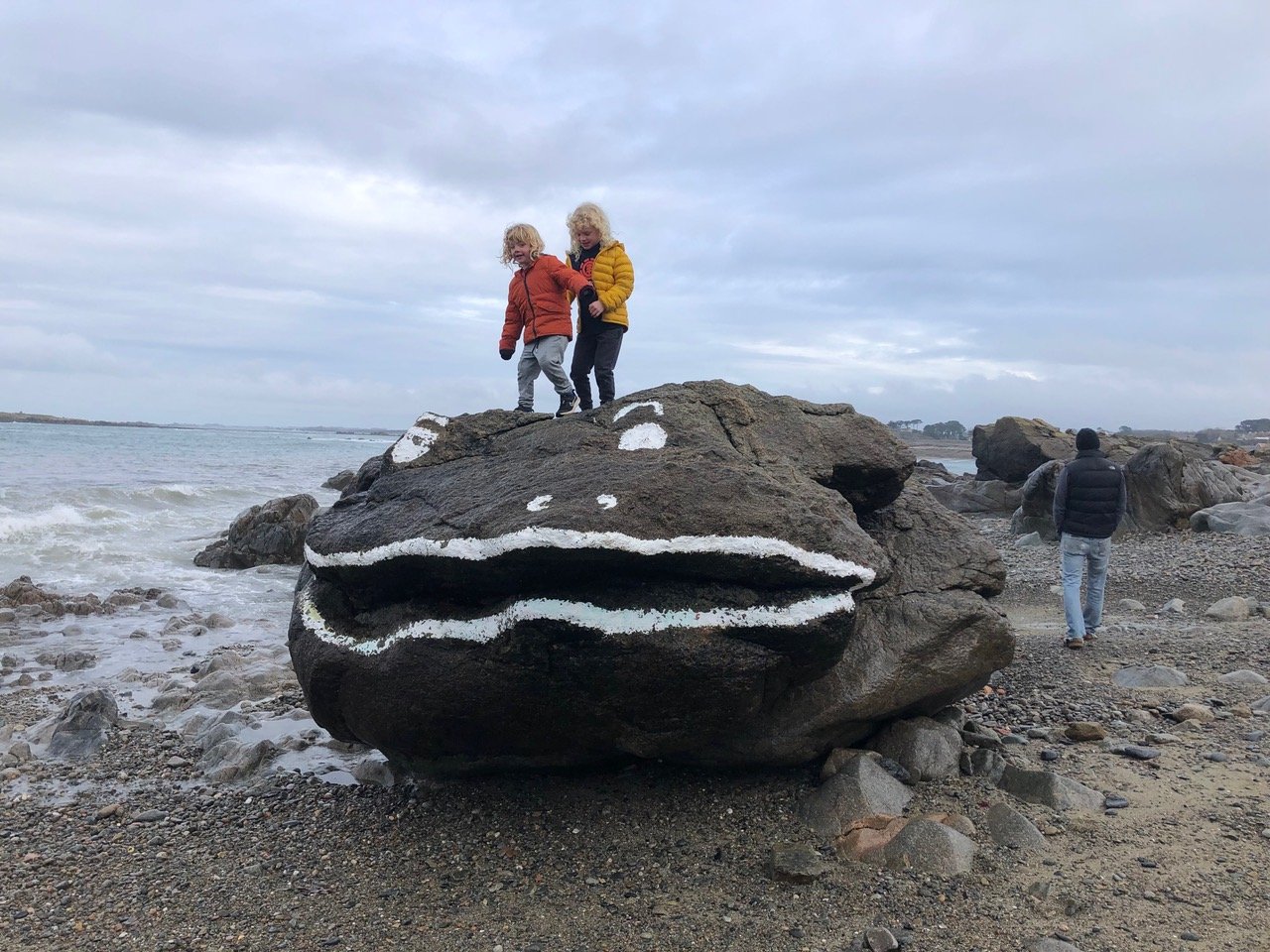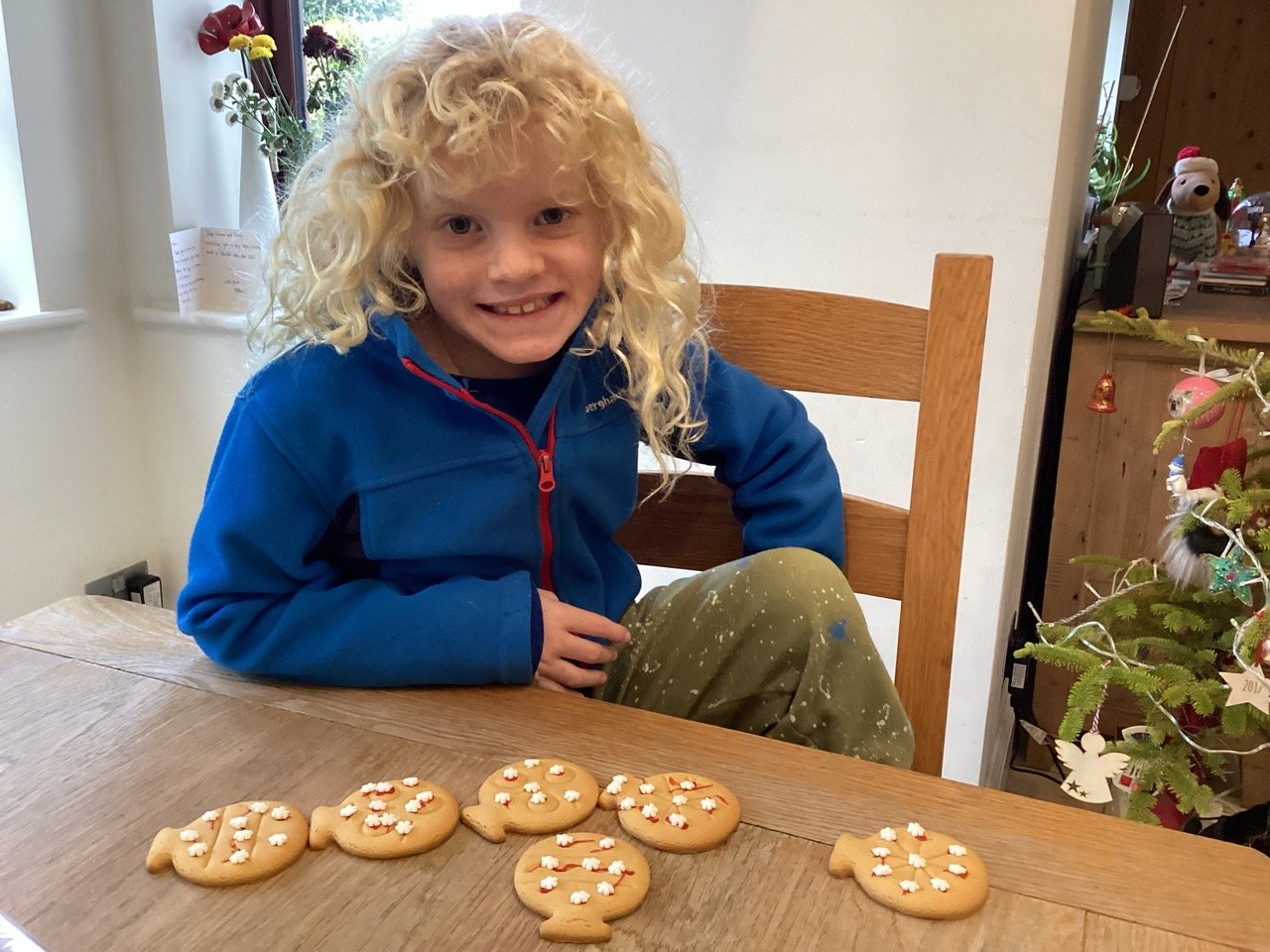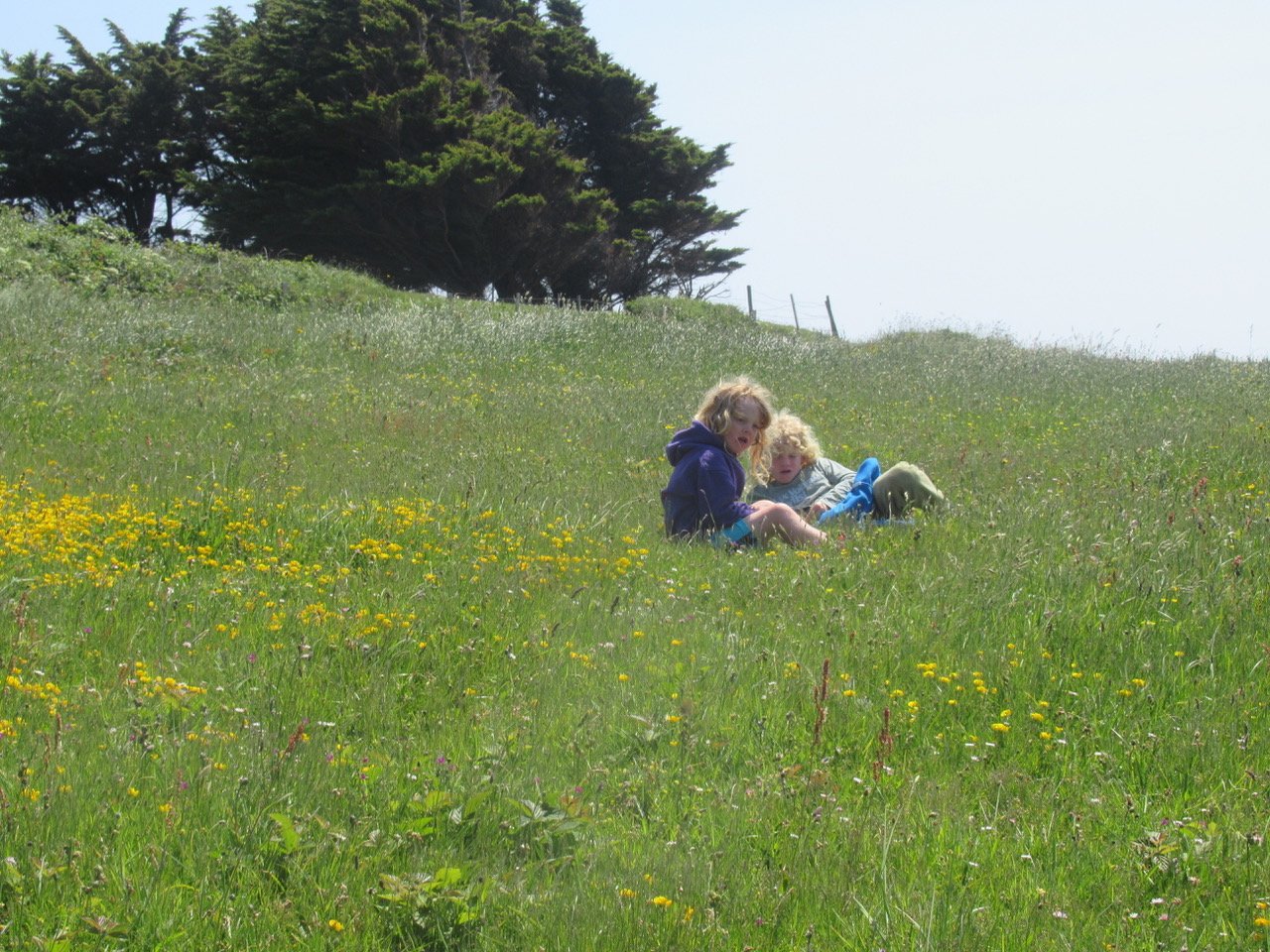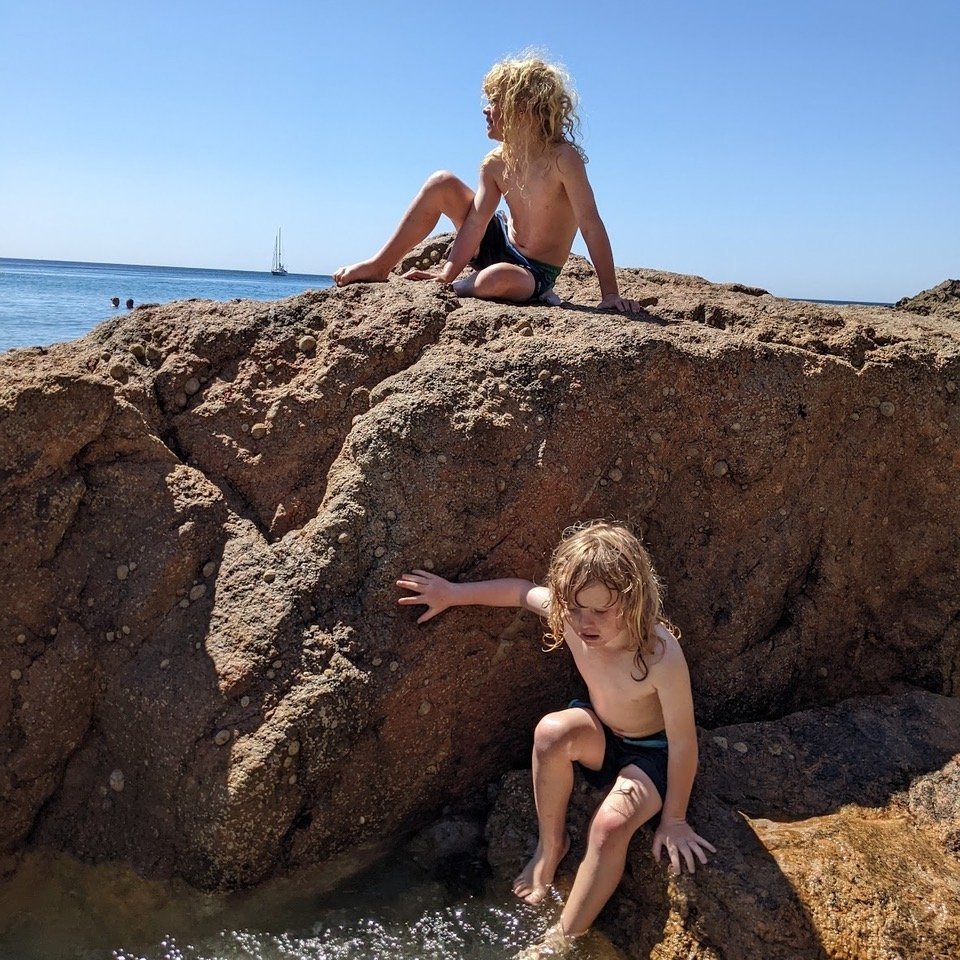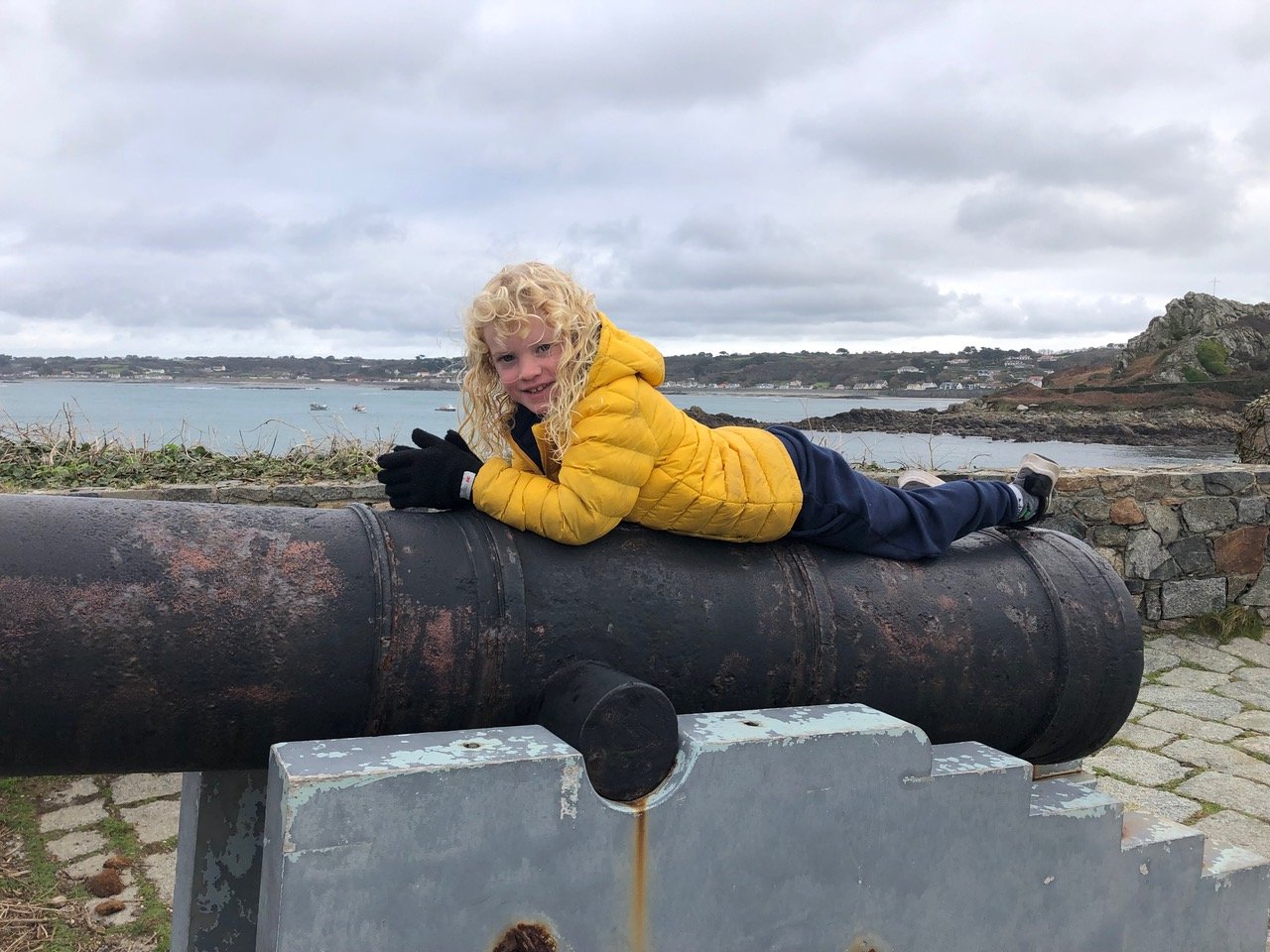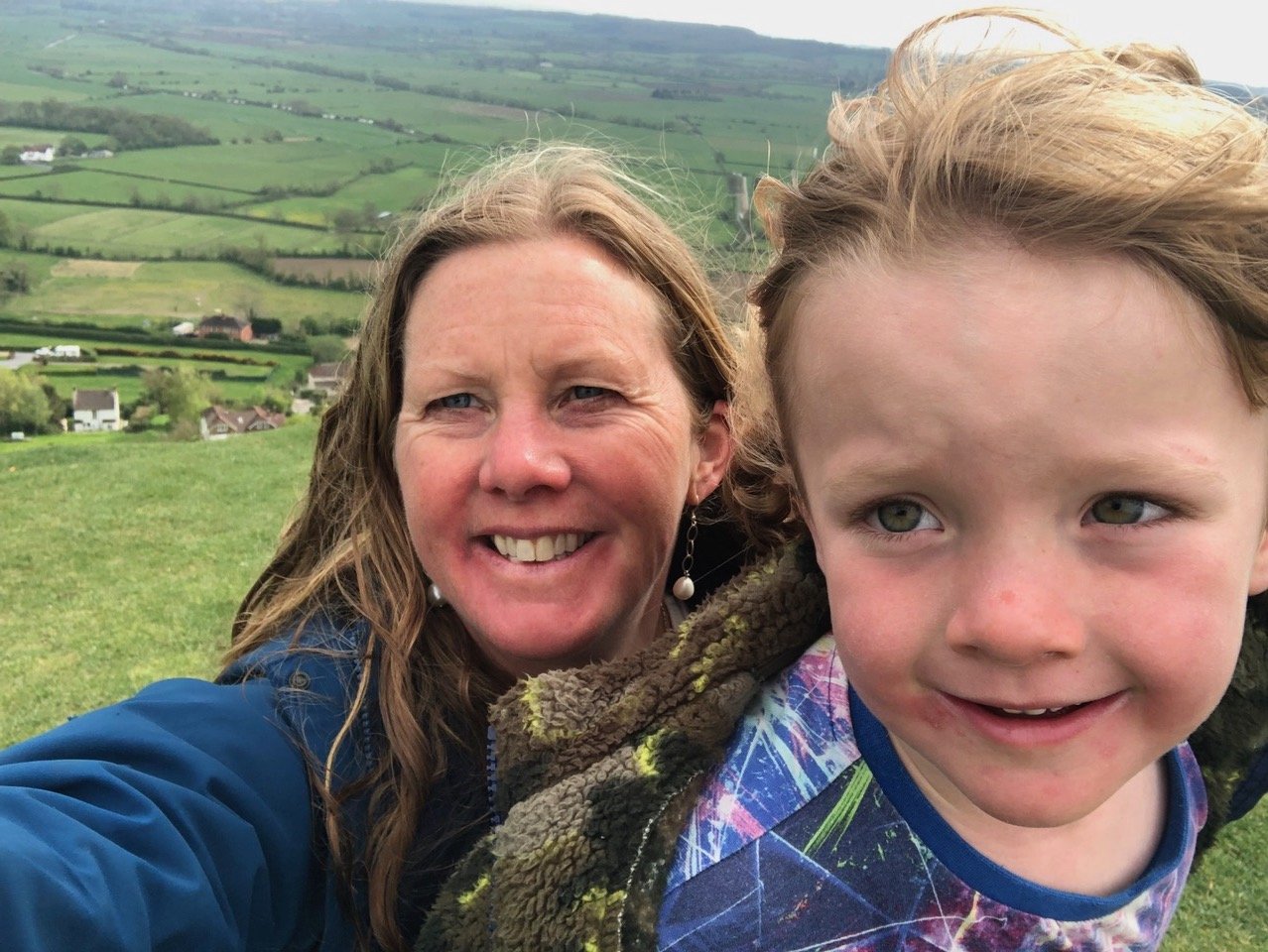Our homeschool journey (part 2)
Our homeschool journey (part 2)
Flow
Inevitably it has taken time to find our flow with Elijah since then and I would encourage any of you embarking on home schooling to take your time too. You cannot rush these things so please don’t put too much pressure on yourself. Inevitably – like me – you will come up against your conditioning, it runs deep, not least from a societal perspective but also from your own experience.
For example there are moments, even now, where I panic and question what we are doing. It is quite a responsibility to literally take responsibility for your own child(ren)’s education. You can’t blame the school or the teachers as so many do, in fact there is no one to blame, this being the nature of responsibility. The children show the way - Elijah has without doubt shown us that there is more than one way to learn, and that there is also more than one way to be in this world. My Dad will be the first to say it has been the best decision we made for Elijah, now thriving.
The community
I shall always be grateful to my home school friends. While there is a large home school community on the island with children of all differing ages (last time I asked, I was told there were approximately 80 children on the Home School Register) we parents might come at it from different perspectives. It took me some time to find my way with this, because of my spiritual and slightly alternative emphasis it was easy to assume that others came at it from this similar perspective but I discovered that this is not the case.
For example, some are teachers themselves and are keen to follow a more formal approach to learning with their children, and others are more radical, following an unschooling approach in many respects, where it doesn’t look like school at all. So even within the home school environment, we had to find our tribe so to speak, and I was lucky in that I had befriended some of the women in my involvement with the home school community previously and was now able to commit to them.
Over time I have formed an especially close friendship with four mums with children of similar ages, all of whom share a similar spiritual, holistic and nature-based approach to living and learning. Fortunately our children all get along which helps enormously. I have tried forming friendships with other mums but if the children do not align then it is pointless, and you cannot force them, just like school, they either get along with other children or they don’t.
Subjects & activities
Like most children Elijah learns best when he is interested in the subject matter. He loves facts and will get obsessed by things, so we follow his current obsession, all of us learning in the process. We have all discovered that it is absolutely pointless sitting him down at a table because he switches off immediately. Anything which resembles formal education will meet his resistance, with us at least. So we’re outside a lot following his interests in real life experiences where we can.
Furthermore, for all the downsides of iPads, there are many up sides too, and while some of my home school mums avoid them because of concerns over the long term effect of electronics on the brain and one’s ability to focus etc., Elijah has used it as a very effective teaching tool to further his reading and writing, and to allow him to follow his current interests – he still surprises us with the depth of his knowledge.
Over time we have gradually introduced more activities. We started off gently with Children’s Fire, a nature based session with our little tribe. From this we explored sailing with The Sailing Trust, which has proven to be an extremely positive experience, not least building his confidence but gifting him an interest in boats. From that he started motor boating, which has also helped his confidence exponentially, especially as we had no choice but to leave him on his own with the group – quite an achievement!
He continues to see a dyslexic professional privately and he has recently started with a private maths tutor too, as well as attending an after school arts club. This term he starts wood carving with the Children’s Fire gang, as well as drums and design and technology privately. I also teach yoga and some form of holistic healing with our little tribe when we have time – as you can see, our schedule can easily get busy, especially when you factor in outdoor play.
Over the years we have tapped into other local resources; Candie Museum have held sessions for us, so too the Guille-Alles library. We visited Lloyds Bank to learn about banking. We visited the harbour to see maths and physics theories applied in practice. We’ve joined together for practical science. We have also enjoyed many a dowsing session with Tony from the local dowsing society and Nic Jee kindly teaches us about life at Heritage Farm throughout the changing seasons.
We have visited the police station, fire station and ambulance station. Some of us stayed on Lihou for a few nights. We took a trip to Island Waste and another to the reservoir with Guernsey Water. We have visited the Occupation Museum and Castle Cornet. We have also walked parts of the cliffs and done a fair bit of cave searching too. Beach time and rock pooling is a favourite and we have even started fishing, albeit more time is spent preparing the rod than actually fishing!
Eben
As for Eben (now 7), when we took Elijah out of school, we were told that when one child is home schooled, siblings in formal education will soon follow. However we were keen Eben continue at school for as long as possible. While he too suffered separation anxiety, making each drop-off still challenging and resulting in lunch time pick-ups, steps were taken at school to ease the separation and so by the end of Reception he was staying for lunch.
It wasn’t easy for Eben though. While he understood that he was going to school because Elijah had gone to school at the same age, he was frustrated about being treated differently. He liked playing football with his friends and was a sociable child and we were keen to promote this, but he is also sensitive, hates being watched by others and easily gets bored of more formal learning, which increases the older they get.
Surprisingly, he was deemed a model student by the school, which was quite in contrast to the child we saw at home where his behaviour was often violent and destructive, towards Elijah especially. Taking advice from Autism Guernsey, we now know that this is called masking, where children (or adults) hide or disguise parts of themselves in order to better fit in with those around them. Basically Eben found a way to cope with being in the school environment where his fear of being singled out or having people look at him was huge.
This does mean however that when they come home, the mask comes off and there is an outpouring of all the holding on that the masking causes. It takes a lot of energy to mask and try to be someone you are not, and overtime this can lead to increased levels of frustration as well as burn out. This masking absolutely accounted for Eben releasing his frustration on his brother, not that we realised that at the time.
We did seek professional advice from the child psychologist again and while ADHD was mentioned, we saw this more as a trauma response than a condition and sought holistic help accordingly. We also tried to do our best to make the school experience as positive as possible and when he showed signs of a speech impediment, my parents very kindly paid for him to see a speech therapist who identified a hearing issue and sure enough, this was validated by an audiologist and steps were taken to alleviate any issues this may cause in the school environment.
Just before the end of year one, however, it all got too much for Eben and he refused to go to school. While we are not exactly sure what tipped him over the edge, we believe it was a combination of factors including issues with friends (a girl kept trying to kiss him and a new boy was intimidating him), he loathed Phonics especially with hearing/speech issues (as did Elijah interestingly, it was a daily grind that caused tears), a sponsored swim and sports day looming, both terrifying for a child who doesn’t like people watching him, Elijah’s increasing freedom with the home schooling and me about to leave for a week away from the family, and all in all it was too much for him.
It might sound ridiculous to others, but we literally couldn’t get him to school. Any attempts to do so caused the fight/flight response to kick in and he literally took flight through a sky light in his bedroom and up onto our roof. It didn’t help of course that he knew Elijah wasn’t going to school so there was cover for him at home – it wasn’t like we had 9-5 jobs and had no one to look after him.
The school did their best to help, but understandably with approximately 550 other children to manage they couldn’t send anyone around to collect Eben and even then, we would have been faced with the same issue the next day. This would have resulted in an even angrier child to manage in the interim, who was showing visible signs of distress and taking radical action to get us to pay attention and take on board that he really wasn’t enjoying the school environment.
We sought professional advice again, this time seeking an assessment from a child Occupational Therapist. While this highlighted a few sensitivity observations, we began to realise that there was nothing wrong with Eben per se, we were simply trying to fit a round peg into a square hole and make the problem our son rather than the system in which we were trying to place him.
Needless to say all professionals were keen for Eben to return to school. He displayed as a model child after all and people kept telling us that school was the best environment for him, even though he clearly didn’t feel the same. We were also told that he was playing us and perhaps he was, but having seen how Elijah was thriving out of school, I wasn’t sure that battling Eben into school was the answer either.
In many respects Ewan and I were still up against our own conditioning and our fear of what might happen to Eben if he came out of school, mainly because he is a very different child to Elijah, and we wondered how we might cope and if we could meet his academic needs, which Elijah did not share. So we followed along and put a plan in place with the school for a staggered return into year two taking on board the needs identified by the Occupational Therapist for extra support and increased opportunity for movement during the day.
Regardless of plans and intentions from professionals and ourselves, Eben had other ideas. He was not going to return to school. His will is strong and his soul had spoken; he wanted to be at home with Elijah.
Double home schooling
So began our double home school journey and what a journey it has been. Having two at home has massively changed things. Elijah is a quiet boy happy to entertain himself. Eben is wilful and highly energetic, relishing activity and action. Not only that but Ewan and I had to change our working schedule yet again to be able to manage two of them and their differing timetables and still manage to earn money to support a home and family.
Needless to say it has taken time to find our new flow. We have both been challenged. Half way through the term we began questioning whether we could keep going, again our fear and conditioning getting the better of us. So we applied for an out of catchment place at a smaller primary school and while we were granted the place, we realised nothing had changed, Eben was still not going to go to school and certainly not to a new one, regardless of our insecurity.
Fear & conditioning
So I realised that if I could not change Eben, I had to change something in myself instead. I looked at my fear and saw that I was worrying about Eben being left behind. Left behind what? This is when I became increasingly aware of the extent of my own conditioning.
While I know on the one hand that the current education system is not fit for purpose and does not teach children the actual skills they might need to literally survive and engage with the world in terms of cooking for themselves/a family, managing bank accounts, basic bookkeeping and accounting info, running their own businesses, self -care and health awareness, looking after animals and parenting, growing vegetables, living more consciously on the planet, following their hearts etc., I still found myself worrying whether Eben might end up behind his peers in traditional learning.
I realised how deeply embedded this idea of not keeping up, or of falling behind really is. I see now how it motivates parents to pay for private education and yet still feel a pressure to send children for extra tutoring just to ensure that the child(ren) meets certain age determined targets. There is a great fear of what might become of one’s child if that child does fall behind and what this means for social ‘norms’.
This has been ingrained since birth in many respects. From the day a child is born s/he is subject to comparison with pre-determined criteria which assures you that your child is ‘normal’ or not. All of us are concerned for any signs of abnormality, not least in terms of the implications for us as parents and our reputational sensitivity, but in terms of our child’s survival, reputationally too. At its root this is our fear - the fear of what might become of our child if they are not performing normally or above – will they survive in the big, bad and chaotic world in which we live?
If there is one thing I have learned from all this, from unravelling and trying to get to the root of my own relentless drive to achieve and obtain certification to prove it, has been fear of what might happen if I don’t do this. I was trained to behave this way. Since the age of 4 if not earlier, education encouraged me to always have to attain beyond my current level. It afforded me praise and I felt good about myself because of it. But it also afforded me a sense of security. If I passed my exams with flying colours I was promised – through education, by society – the world.
Education then was my ticket to be able to earn the money to ensure my security. I was sold this illusion. We are all sold this illusion. Yes it can help. But education does not make the world stable. We are probably at our most ‘academically educated’ globally, yet the world is far from stable. And we are certainly not thriving as a specie. Placing our intellect and brain capacity beyond all else is not a healthy way for us to exist on this planet. We are not merely minds for hire. We are people with bodies and hearts and souls.
When we are lying on our death beds, will we wish we had spent more time in school learning? Or wish we had spent less time inside, training our minds to see the world a certain way, when we could have been out in it instead, being the change we want to see in the world – interacting with it, living it, being in it. In short it seems to me that our society has become neurotic about education as a form of security, to the extent that childhood is becoming compromised.
Furthermore, education has not kept up with changes in society and especially in the work place. Children still wear blazers and ties to secondary school here on Guernsey, yet business has increasingly moved away from this archaic dress form. Technology allows us to talk into computers and use it to help us solve our English and maths problems, so that we don’t need to work them out for ourselves, or write unnecessarily. Simply put, we don’t need to be educated in the way that we once were, the world has changed and education has not kept up.
Furthermore, there is no such thing as a job for life anymore. And employers are increasingly seeking students who can think outside the box, who haven’t just been trained to pass exams, but can actually engage themselves in real life situations. They want students who are thriving, not those suffering mentally before they’ve even got going with their working life.
Recently, I was both disturbed and concerned to hear about my friend’s 18 year old daughter whose level of stress in the final year of exams caused panic attacks which have left her suffering anxiety and depression and on anti-depressants. Apparently this is not unusual, many friends of this girl, also 18 years old, are all suffering mental health issues and are taking anti-depressants and/or anti-anxiety medication to cope.
I know from my own experience the detrimental impact of the pressure of getting good A-level grades to ensure entry to the university of choice. I don’t believe it is any coincidence that I ended up developing an eating disorder during my final year of school. I have since witnessed two clients who also developed eating disorder at the same age (17) because of the pressure of studying and anxiety about leaving home to go to university – life feels utterly out of control and perfectionist tendencies run wild.
When I thought about it, I realised that my fear with Eben was exactly that, False Evidence Appearing Real. It was not true. There was nothing to suggest he was behind. And at the end of the day, this idea of being behind is an illusion anyway. Children learn when they are ready. In Scandinavia children don’t start school until they are 6, and in Finland the compulsory age is not until 7, this on the understanding that they learn best through play before 7 and so that when they begin school they’re keen to start learning.
All I was doing was comparing my child to children in what I see as a broken system. I owe Eben more than that. I owe him the same chance I offered Elijah, in showing me that there is another way. There is always another way and I should have more faith and trust in that. And more fool my Mum for teaching me as a child never to be a sheep and follow others…
It is one thing following because of trying to survive. But there is a difference between surviving and thriving and I wish for my children to thrive, not just survive.
Owning it
I also realised that I needed to take ownership of the choices Ewan and I have made. For much of this first term I heard myself saying, “I didn’t choose this” in relation to home schooling our boys, when I was conscious that other home schooling parents had made that choice earlier on in their children’s lives. I considered them more passionate about, and committed to, home education whereas my principle passion has been towards yoga and Reiki and healing work generally.
Yet when I looked at this, I acknowledged that whilst it wasn’t my choice, in so much as the boys made it very clear they weren’t thriving in school, it was my choice. I could have carried on, like so many others in similar positions to Ewan and I, putting our children into school and hoping for the best. But we didn’t do that. We made different sacrifices. Because let’s be clear, life is one of sacrifice, just as it is one of choice – we have to choose the sacrifices we are prepared to make.
We have no idea how this will unfold. We have no certainty of outcome. But in my heart this feels the way for now and I have learned that it helps enormously if one can own that. Therefore Ewan and I have finally owned this as our right way to live for now, and this alone, this knowing, brings greater stability and joy and allows more of the passion, possibility and potential to reveal itself.
As Gandhi said, ‘we have to be the change we wish to see in the world’ and I am in awe of my children for making it so, for already living their dharma, their purpose, showing us that there are many ways to be in the world and they would prefer a much kinder, flowing and freer way than the one we had presented to them when they began in education. They really want to be that change. They want to be free to be themselves regardless of other people’s thoughts and opinions and society’s conditioning and expectations.
I share this story with you, not least for my own processing, but because this is a conversation I have with people from time to time, who are conscious that their child is not thriving in school but they don’t know what to do about it. All I will say is that there are options. It doesn’t have to be one way. You just have to find the way that works best for you and your children and your family and then own it and protect it.
No doubt this journey will continue to brush Ewan and I up against our conditioning, and we will continuously refine our right way to live as our children’s needs and need of us changes and as our own needs change. But this is life. If there is one certainty, it is that things change. That’s the reason I struggle to define our home schooling approach, because it just needs to have the space to be whatever it needs to be – regardless of how it looks – in each moment. Moment to moment is enough.
